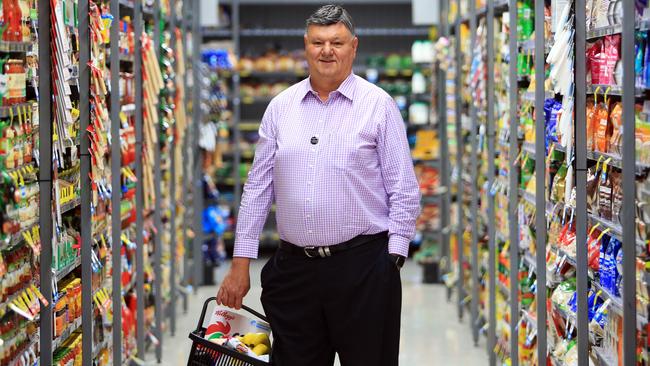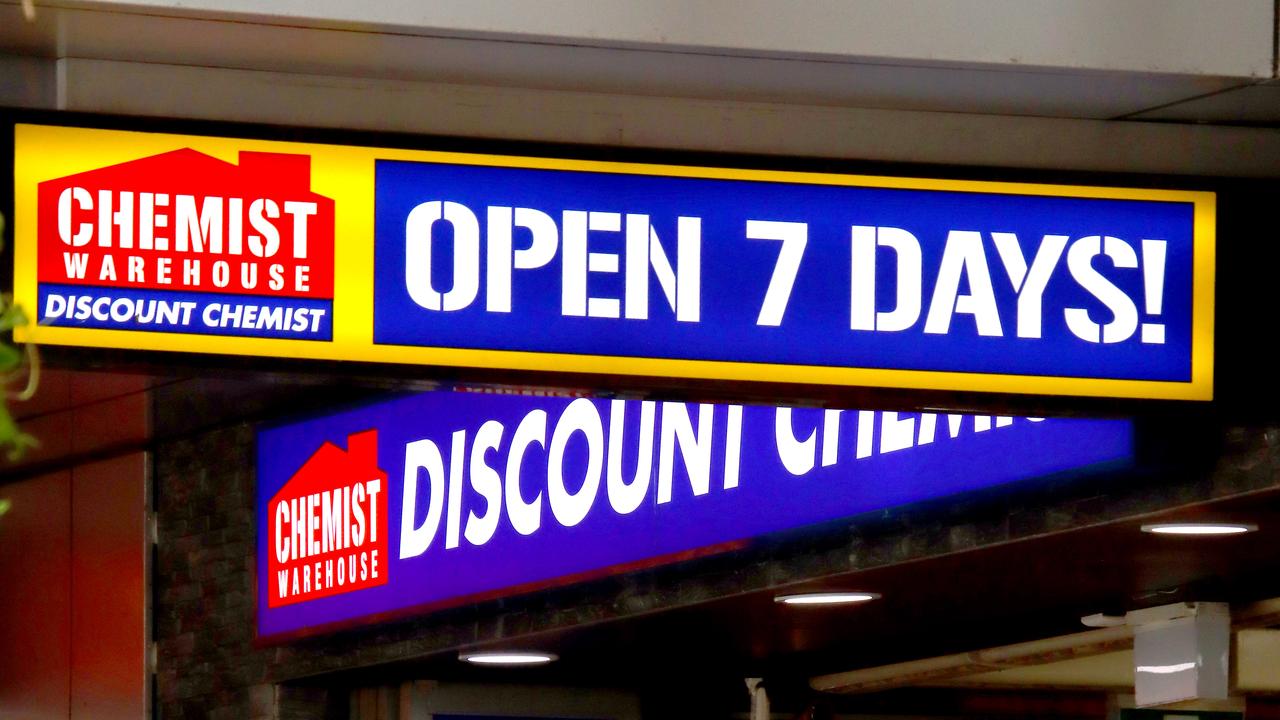Ritchies: Why Harrison won’t offer grocery online anytime soon
Ritchies boss Fred Harrison refuses to offer grocery online. The same goes for click and collect. Here’s why:

Fred Harrison refuses to offer grocery online. The same goes for click and collect. The grocer stands apart in a retail sector where chief rivals Woolworths and Coles are pouring billions of dollars into pricey technology to wow shoppers with online experience.
The chief executive and major shareholder in Ritchies supermarket chain is more concerned about the price wars that have slashed shelf prices and and says they have gone too far and must reflect the realities of the economy and begin to ease off.
And, in what could be sacrilege for a supermarket boss, Harrison argues it is inappropriate for grocers to be steeply discounting fresh food at a time of bushfires, drought, meat shortages and unreliable supply.
“We have to be careful. With prices going up you could not look at anyone on the farm or out on the land at the moment and say you can’t justify price increases. Of course they can justify a price increase and some, Harrison says.
“We just need to be able to reflect that in our retail price. That’s where we are all a little slow to react. And I think you will see some pretty significant price increases over the next year or two as we fight bushfires and the drought,’’ Harrison, tells The Weekend Australian from his national headquarters in Carrum Downs in Melbourne southeast.
He is also worried about consumers’ ability to pay higher prices, and is warning that with swine flu still ravaging China consumers in Australia should expect sharp uplift in pork prices with other meats set to follow.
Meanwhile, Harrison will gladly skip the websites, robots, click and collect lockers and online delivery vans for now, with his Ritchies network of 78 supermarkets striving to be the best bricks-and-mortar supermarket retailers in their communities.
“As far as click and collect and online is concerned, we have not gone there. We monitor it exceptionally closely, we talk about it every month, and the truth of the matter is we are trying to be absolutely best in class at bricks-and-mortar sales.’’
It’s a tough stance and with $1.2bn in yearly sales it probably makes the 149-year- old Ritchies one of the biggest retailers in the country to voluntarily go without online. “We have not seen our sales go backwards by not participating online. We just see at the moment that if we go down that path we are going to lose money. Is it smart for us to go and invest a whole lot of money in areas that are going to lose us money?” he says.
“We want to win at bricks-and-mortar retail; the numbers show we are winning. Ultimately, I would see us moving into click and collect, but I think while we are winning at bricks-and-mortar we have two or three years ahead of us of working hard.”
The past decade has been hard work too. It’s the independents such as the supermarkets and liquor stores that cluster around the Ritchies banner and conduct their grocery wholesaling through Metcash that have been most threatened by the arrival of Aldi.
Most analysts believe the runaway success of Aldi, which went from a standing start to around 11.5 per cent market share of the $100bn supermarket sector, has mostly come from taking shoppers from independents. As Aldi has grown, the market share of Metcash and the independents they serve has fallen through 8 per cent and on its way to 7 per cent.
“I think there will always be space for independents. Our market share (as a category) has obviously declined, particularly over the past 10 years. We don’t open the number of new sites that Woolies, Coles, Aldi and Kaufland do so it is hard to grow share. But I think there will be multi-store operators, more and more people with two, three or eight and 10 and 11 supermarkets, It is becoming increasingly difficult for the single-store operator, unless you are a real niche operator.
“Bigger stores will grow. We have 78 stores in Ritchies. We have grown by 25 stores to 30 stores in the last seven years and we will see more of that happening,’’ he says
Harrison is looking forward to next year when Ritchies turns 150 years old, predating the founding of Coles by almost 50 years. Its popular Ritchies Community Benefit Card will soon clock up $50m in donations to clubs, schools and charities.
Harrison said Ritchies, which is almost 50 per cent owned by a family, and the rest spread among staff, key executives and Metcash with 26 per cent shareholder, heads into 2020 with positive like-for-like sales growth. However, he warns that there are structural issues in the sector that need to change, and they have much to do with prices.
“I think there have been some price increases, and more price increases coming through.”
Harrison believes margins remain under threat from the intensity of the price wars.
“So while there are heaps of specials being advertised left, right and centre, the fact that our margins are under threat because of price increases means we are discounting but just in another way — so by not increasing prices to a level that perhaps we should.”
And the future of pork prices: “With swine flu in China, pork has gone through the roof and in another year or two will be up another 20 to 25 per cent and it is going to be scarce,” he says



